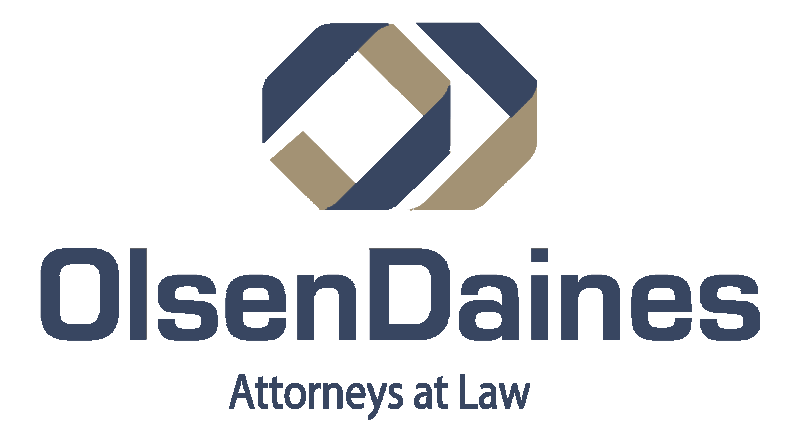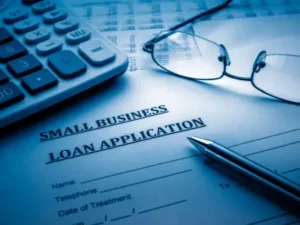 Can You Use Bankruptcy to Discharge SBA Loans?
Can You Use Bankruptcy to Discharge SBA Loans?
Are you a business owner who took out an SBA loan, and now you’re facing financial difficulties? Many people in your situation look to the U.S. Bankruptcy Code for solutions, which can provide a means for discharging many kinds of debt, but what about loans from the Small Business Administration? Can bankruptcy be used to discharge SBA loans?
The answer is yes, it often can, but as is typically the case with bankruptcy cases, it’s all about the details. While the law allows for SBA loans to be discharged through bankruptcy, whether you can eliminate the debt hinges on a few critical factors, such as the existence of a personal guarantee or collateral that was used to secure the loan.
This article is intended to explain how these factors may affect your options. But it’s important to remember that navigating the complex world of bankruptcy and SBA loans is best undertaken with an experienced bankruptcy attorney. If you have any questions, give us a call.
When Can You Use Bankruptcy to Discharge SBA Loans?
In straightforward cases where there are no complicating factors, bankruptcy can be used as a powerful tool to discharge SBA loan debt.
Here are some common scenarios where that’s the case:
- You Are Dissolving Your Business: If the business is no longer in operation and has little to no assets, Chapter 7 bankruptcy may be able to cleanly discharge the SBA loan.
- The SBA Loan Is Not Secured or Personally Guaranteed: If your loan was not tied to any specific collateral, or you did not sign any personal guarantee, the loan may be easily discharged through bankruptcy.
Schedule a Free Appointment!
Our appointments are free until you file and your concerns are addressed!When Can’t You Use Bankruptcy to Discharge an SBA Loan?
Bankruptcy doesn’t fix everything when it comes to SBA loans. These factors make the legal grounds for discharging the loans much more difficult:
- Fraudulent Application Information: If fraud is found on your application – such as by inflating income or assets or hiding debts – the debt may not be dischargeable. Bankruptcy does not protect debt obtained through fraud.
- Misuse of Funds: SBA loans are intended for specific uses. If your loan was intended for payroll, inventory, or equipment, for example, it must be used for those purposes. If not, the debt may not be dischargeable.
- Liquidating Collateral: If you pledge equipment or property as part of your loan, then sell that property and keep the cash, you will likely still be on the hook for your loan debt.
Should You File for Bankruptcy for Debt Relief from an SBA Loan?
Filing for bankruptcy is a highly personal decision, and the considerations are different for everyone. We don’t recommend filing for bankruptcy simply because you wish to wipe the slate clean. There are major repercussions to your credit, and we only recommend it if you’ve exhausted all other financial options.
However, when you are facing insurmountable debt, bankruptcy is a powerful legal tool designed to provide a fresh start. If you’re dealing with an SBA loan you can’t pay, filing for bankruptcy can offer several significant benefits:
- Immediate Relief: The moment you file, a court order called an Automatic Stay is issued, forcing the SBA and other creditors to immediately halt collection calls, letters, and legal actions against you. This provides some much-needed relief, allowing you to plan your next step.
- Provides a Clear Process: Bankruptcy gives you a single, well-organized legal process to resolve your debt under the supervision of the court.
- Protects Certain Property: Bankruptcy often allows you to protect certain assets, allowing you to keep essential property for your fresh start.
What Are the Different Types of SBA Loans?
The type of SBA loan you have can affect your bankruptcy strategy. Here are the most common types, and what you should know about them:
- SBA 7(a) Loans: These are the most common SBA loans, and they always require a personal guarantee. So you will likely need to file for personal bankruptcy to discharge the debt.
- SBA 504 Loans: These loans are issued for specific major purchases, like heavy equipment or buildings. The loan is usually secured by that valuable property, meaning you generally cannot wipe out the debt in bankruptcy proceedings and keep the asset.
- EIDL Loans: Economic Injury Disaster Loans were very common during the pandemic, and they can be discharged via bankruptcy. However, for loans over $25,000, the SBA will place a lien on business assets, meaning that even if a personal bankruptcy discharges your debt, the SBA can still legally claim the property.
- SBA Microloans: These are smaller loans, and they’re typically unsecured. They are fairly straightforward to discharge during bankruptcy proceedings.
Is It Possible to Discharge an SBA Loan with a Personal Guarantee?
Yes, you can. The personal guarantee links your personal finances to your business debt, meaning the SBA can pursue you personally, but you can file a personal bankruptcy to address this exact problem.
With a personal guarantee, the SBA loan debt becomes your personal debt. However, successfully filing for Chapter 7 or Chapter 13 bankruptcy can wipe out your obligation to pay, giving you the fresh start you deserve.
Got Questions About SBA Loans and Bankruptcy in Oregon and Washington?
The rules surrounding SBA loans and bankruptcy can feel overwhelming, but you don’t have to navigate them alone.
If you are in Oregon or Washington and need clarity on your options, contact OlsenDaines today for a free bankruptcy consultation. We can provide the guidance you need to move forward.
For more information about bankruptcy and how it can affect you, check out our Bankruptcy FAQs.
Back to Bankruptcy Attorney
 Can You Use Bankruptcy to Discharge SBA Loans?
Can You Use Bankruptcy to Discharge SBA Loans?